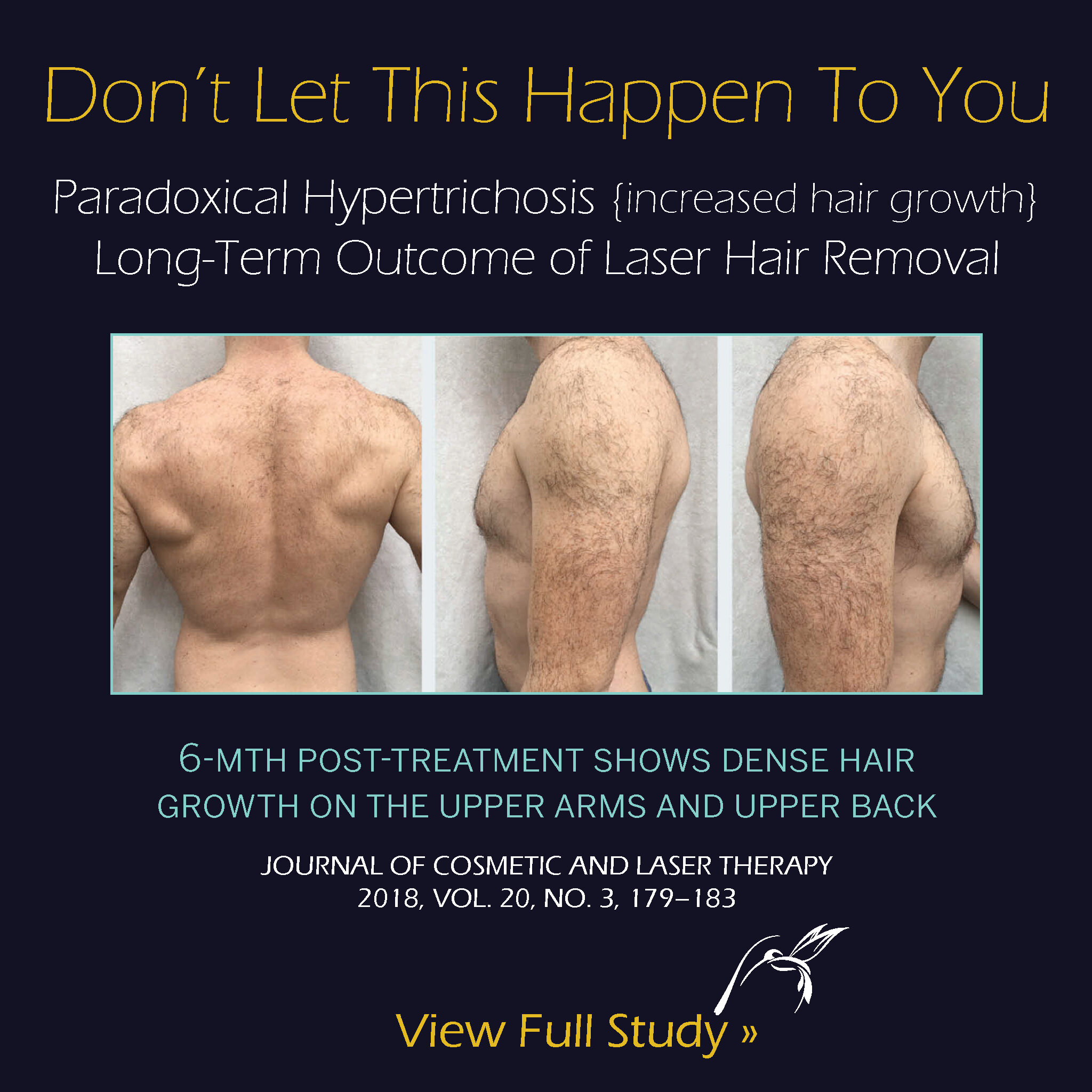Paradoxical Hypertrichosis
What is it
An uncommon but striking adverse effect of laser hair removal (LHR) in an increase in hair density, color, or coarseness, or a combination of these at, or near, treated sites in the absence of any other known causes of hypertrichosis.
This event is called paradoxical hypertrichosis, terminalization, induction, and excessive terminal hair growth. source: Dermatologic Surgery »
If you or someone you know experienced paradoxical hypertrichosis after receiving LHR, take a stand to help us stop laser companies from omitting the possibility of these negative side effects before administering it to their patients. Sign the Petition ». If you want to share your story », we would love to hear it.
Testimonials
Probability of Impact
Paradoxical hypertrichosis (PH) is said to have a low incidence from LHR, ranging from 0.6% to 10% of those treated; however, risk increases among those with underlying androgen-related hormonal conditions. The highest incidents of PH occurred on what we’ve labeled, the danger zones » of both men and women.
More wide-scale studies have been highly encouraged by medical journals on this topic to place an emphasis on other factors that may impact its probability like, darker skin types, underlying hormonal disorders, age, sex, race, laser types and settings, and number of treatments necessary to validate these claims. source »
View this scientific study » on PH after LHR
Scientific Abstract » of PH on 21yr old male
Danger Zones
+ Women - Face & Neck
- Sideburns, Cheeks, Upper Lip, Chin, Neck
Women with the following hormonal conditions are at even greater risk of paradoxical hypertrichosis:
- PCOS - Polycystic Ovarian Syndrome
- NCAH - Non-Classic Congenital Adrenal Hyperplasia
- Cushing’s Syndrome
- Androgen-Secreting Tumor
+ Men - Upper Torso
- Back, Shoulders, Chest
Hormone Supplements + Medications
Those taking hormone supplements, or corticosteroids also have a higher chance of experiencing PH.
Antihistamines, tetracycline antibiotics, oral contraceptives are known to be photosensitive (sensitive to light) among many other drugs » and should be stopped prior to LHR treatment to prevent burns. It is still advised to check with a doctor before proceeding.
⚠ Use Caution ⚠
All laser and light sources have the potential to cause hair induction.
Since there are very few studies on the adverse effects of laser hair removal, we encourage those considering it to refrain from getting treatment in and around the pre-defined danger zones if you have been qualified as an ‘at-risk’ candidate per scientist’s findings.
“Mocking precedes learning the hard way.”






